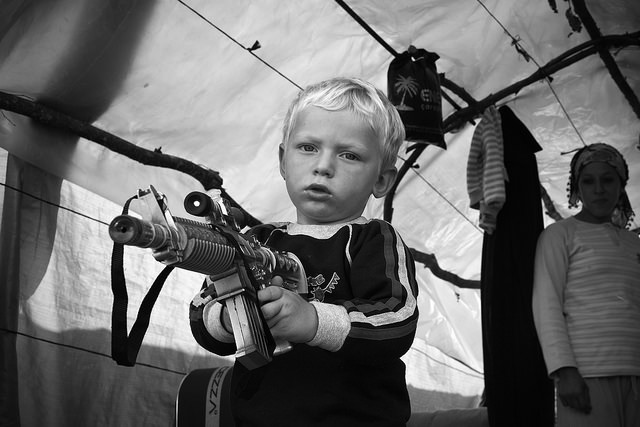
When large-scale violent events occur in our world, we spend most of our time pointing fingers and analyzing what happened and why.
We don’t spend enough time talking about how to digest the tragedy—how to heal and how to not become filled with hatred and fear. Here are nine tips on how to process incomprehensible violence.
1. Feel
Feeling can be the hardest thing to do after a trauma, but we must allow ourselves to feel whatever we’re feeling. Despair, confusion, sadness, anger, frustration, disbelief—all of it. We must witness how we’re feeling without trying to fix or change it and let the emotions, however intense, run their course. Hearing about violence is like taking a small dose of poison, it affects our whole body. When global catastrophes occur, we ingest the experience of this trauma, and we need to properly digest it. Failing to assimilate this experience will cause the energy of the trauma to be stuck within us, requiring us to numb ourselves in order to ignore it. Emotion is energy in motion. When we ignore or suppress the emotion, the energy gets stuck and often expresses itself pathologically. We must give ourselves space to feel what we are feeling so that it can move through us.
2. Commune.
Even when we are physically untouched by a tragedy, as a community we are wounded. Our national identity is violated and the trauma is stored in our collective pain body. When we are collectively traumatized, we need to heal collectively. Often times, after a community catastrophe, people take sides about what is the right and wrong response. This causes even further division and prevents the process of coming together to heal. It is unfortunate that western culture has largely done away with community ritual, because it is a way for communities to actively come together in order to mend themselves post-tragedy. Holding a group vigil, group prayer or meditation or even a community meal acts like salve for the collective wound.
3. Be grateful
Tragedy shakes us awake to the urgency of life, it forces us to remember not to take anything for granted. It often, however, leaves us feeling guilty for being a survivor. We must allow ourselves to release this guilt. It is not productive and serves no one. We cannot change what happened; we can, however, be 10 times more grateful. Gratitude is the antidote to guilt. We can actively, intentionally practice gratitude by writing a list of 100 things we’re grateful for or use something that we do every day as trigger to remind ourselves to be grateful: every time we pee, every time we’re about to check Facebook, every time we’re at a stoplight. We can remind ourselves of the privilege it is to be alive.
4. Be the change
While it’s important for us to feel our anger, sadness and frustration, we must focus this energy productively. We must allow our aversion to violence, ignorance and division to remind us of our commitment to creating peace, understanding and unity. So rather than blaming others for the ways they justify violence, we all must look within ourselves and admit to the ways that we justify violence. Violence can only be perpetuated by someone who believes that some lives have a greater worthiness than others. We must recognize where, within ourselves, we harbor these beliefs and recommit to evolving beyond that level of understanding. We must ask ourselves: where am I being selfish? Where am I harboring resentment or ill-will? Where am I justified in my beliefs? Where do I try to dominate others? No act of violence, however small, is more or less justified than any other. Allow the atrocity to be a call to action for each of us to find new ways to practice non-violence, to deepen our awareness of ourselves and to be of service to others. We accomplish nothing by pointing fingers; in fact, by blaming the perpetrator, we put ourselves above them and place blame outside of ourselves. This is exactly what the perpetrator did to justify his violence. Until we recognize that each and every one of us is responsible for creating a world in which violence exists, violence will continue.
5. Don’t generalize
It can be very easy to attribute acts of violence to something about the person who committed the act: their gender, their religion, their nationality, or their profession, as examples. We must try to not allow our anger about the violence to color our view of people. We must not use information about the perpetrator to create beliefs about others who share aspects of his identity. Understand that this act of violence was a personal choice, even though the person might have used a belief system to justify the violence. Making up our minds about how certain groups within society are causes division, and division is the precursor to violence.
6. Don’t try to be right about why it happened
Hindsight bias is that “I knew this would happen” feeling that we get after the fact, yet there is often little or no objective basis for predicting such events beforehand. It’s easy to use violent acts as evidence to prove our own beliefs about people, laws, the government, our country. We must refrain from using the tragedy to prove that we are right about why it occurred. Our intellect wants so badly to make sense of tragedies, but in truth, none of us really knows why they happen. Violence is not rational and cannot be explained away. Although we can all contribute to the prevention of violence, it is often no one’s fault that the violent act happened. It is not the government’s fault and it is not the fault of people who are pro or anti guns. There are very few people who actually want the tragedy to happen. The rest of us are on the same team. And if we take sides, we are depleting our opportunity to work together to create a solution. Discussion then becomes about everyone trying to be right about their beliefs, and “a house divided against itself cannot stand.”
7. Forgive
Forgiving someone for committing violence does not condone violence. It only recognizes that violence is committed by people who are trapped in fear. No one is inherently violent, in fact, those who are least lovable are those who need love the most—those who are in the most pain. It is hardest to forgive when it is most necessary. Harboring hatred or resentment hurts only the person who harbors it, and continues the cycle of violence. Forgiveness is a gift that we give to ourselves. Even if the perpetrator of violence is deceased, it is important that we extend forgiveness to this person.
8. Don’t be afraid
We must try our best not to respond with fear. Studies show that we estimate the probability of events occurring again based in large part on how easily the incident comes to mind. When our national attention is focused on the horror of a tragedy, we can readily recall the event so we overestimate its likelihood of happening again. Proportion of news media coverage is not correlated to the proportion of likelihood for an event to re-occur. We are generally just as safe after a tragedy as we were before. Fear is counter-productive to the goal of peace, and fear of one another is the genesis of violence, so it’s important that we don’t add flames to the fear fire.
9. Understand
Our actions are perfectly correlated to how we see the world. Each one of us has a different perspective on the world that we share; no perspective is right because there is no certain way that the world is. Every perspective is valid. However, there are ways of living that make the world work for everyone and there are ways of living that don’t. When someone lives in a way that is counter to common interest, we must be willing to look from their perspective in order to see why. We can assume that everyone would prefer to have a world that works for everyone over a world that doesn’t. We can therefore conclude that the only reason anyone would act counter to common interest is because a world that works does not seem possible to them from their perspective. We must be willing to put ourselves in their shoes and try to imagine a life in which we felt the need to hurt or kill ourselves and others. From this perspective, we see that to the perpetrator of violence, the world seems more bleak and scary than most of us can comprehend. Committing mass violence is unimaginable to most of us, because most of us see the world as a safe space where peace is possible. Rather than attributing violence to something innate in the perpetrator, we must be willing to look at the world from that person’s perspective. Only from that perspective can we work towards altering the world in a way that will prevent future violence.
~
Author: Brandilyn Tebo
Image: Hakan Gokbayrak/Flickr
Editors: Sarah Kolkka; Nicole Cameron











Read 0 comments and reply